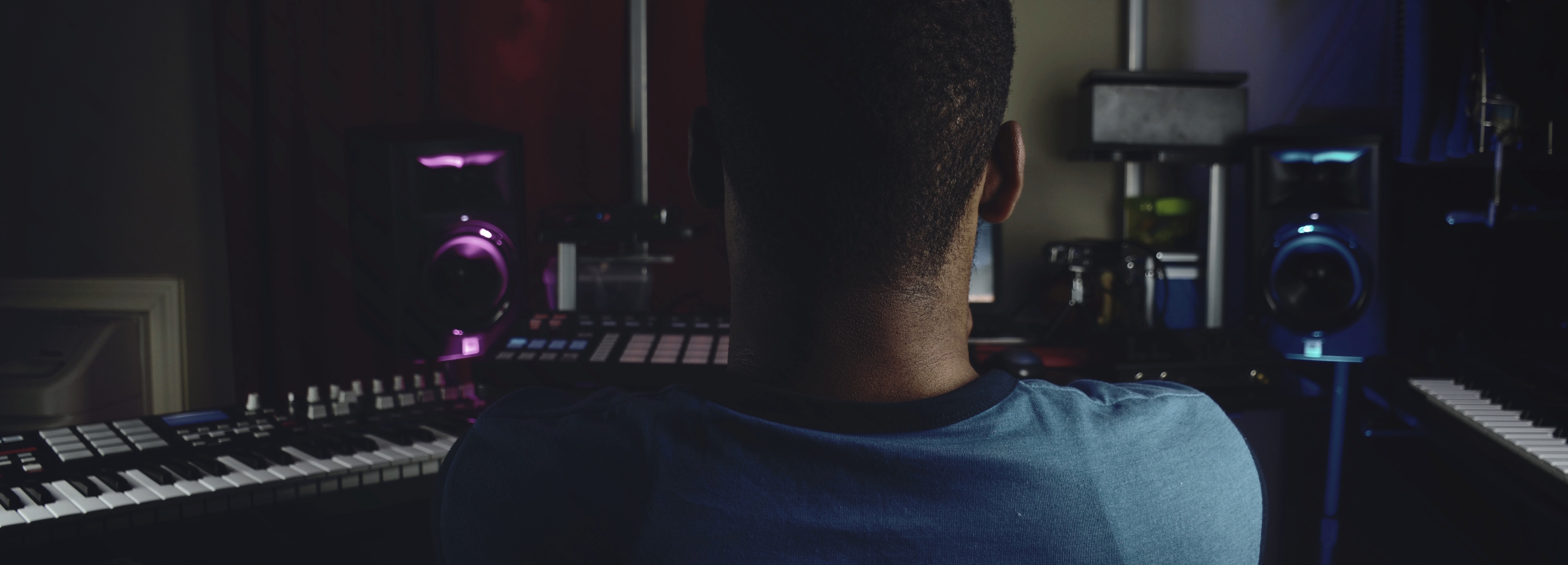“After the Egyptian and Indian, the Greek and Roman, the Teuton and Mongolian, the Negro is a sort of seventh son, born with a veil, and gifted with second-sight in this American world; a world which yields him no true self-consciousness, but only lets him see himself through the revelation of the other world. It is a peculiar sensation, this double-consciousness, this sense of always looking at one’s self through the eyes of others, of measuring one’s soul by the tape of a world that looks on in amused contempt and pity. One ever feels his two-ness; an American, a Negro; two souls, two thoughts, two unreconciled strivings; two warring ideals in one dark body, whose dogged strength alone keeps it from being torn asunder.”
-W.E.B Dubois
Blue Collar Hustle is a web series by Alonge Hawes, about young black millennials in Stone Mountain, GA attempting to rewrite their destinies. The series explores the stories of those who stand in defiance of racist expectations, fears, and legacies—we are rewriting the Black American story. Subscribe via email here.
Part 2: Allegory of Ajani
How boldly can black people speak the truth of their experiences before it becomes too uncomfortable, un-relatable, or uninspiring to the greater society? How can we speak of our pain, depression, or thoughts of inadequacy in a manner that everyone else will understand, when we simply cannot put into words how 400 years of physical and psychological warfare have infected generation after generation? The sheer impossibility of summing up black consciousness into a word, sentence, or essay is enough to drive the thinking Negro insane. So we sing it, we rap it, we dribble it between our legs, and we rush it down the 40 yard line carrying cowhide. We philosophize it, like James Baldwin. We scream it in righteous rage, like Stokely Carmichael. But for most brothers and sisters who have yet to find their own means of expression, we internalize it.
Character Ajani Garvey represents this segment of the black populace, those searching aimlessly for meaning and purpose. He is a successful employee at a call center dedicated to selling tech services and PC support. He has worked his way from part time salesman to Assistant Manager, attaining the title after only three years on the job. He is both the youngest and only African American Assistant Manager in the company. He has been able to achieve this particular feat through the discipline instilled by his father and prior military service. Ajani is what you would consider an upwardly mobile member of African American society, proof that hard work and commitment to a goal can put you in position for success.
He is also depressed.
He is not depressed in a way that would be easily noticed. He remains properly groomed, he is an attentive and loving boyfriend to his girlfriend Anaya, and he is a doting father to his infant daughter Aisha. He shows up to work every morning and continues to push both himself and his team towards the greatness he knows they are all capable of.
He is proud, but unhappy. Something is missing. Ajani feels that his professional mission must align with his personal mission; which is to define his own manhood. This crisis of consciousness has nothing to do with issues of sexuality, inadequacy, or apprehension. It has to do with the burden he has placed upon himself to live up to the ideology of black excellence. Ajani acknowledges and understands the importance of black men who are responsible. Black men who exhibit knowledge of self. Black men who can stand as examples against the negative stereotype perpetuated by the world at large. Ajani feels that existing as a true black man means that he must sacrifice his more creative and eclectic tendencies. He views himself as someone who has the luxury of consuming music, literature, and performance; without the ability to take part in creating it. And so when we meet Ajani he is at an emotional crossroads. A crossroads that will be explored throughout the series as a seemingly random event jolts him out of his mental stupor.
I wrote Ajani Garvey’s character to reflect the African American man or woman who feels the burden of racial responsibility weighing upon their very soul; who fights to be that ideal representation, even when that representation is downright implausible. His story will show that even though many of us wander through a fog of insecurity and indecision, the light of hope shines brightest when we need it most.
Blue Collar Hustle is a web series by Alonge Hawes, about young black millennials in Stone Mountain, GA attempting to rewrite their destinies. The series explores the stories of those who stand in defiance of racist expectations, fears, and legacies—we are rewriting the Black American story. Subscribe via email here.
